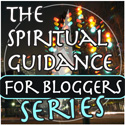
Self-Destruction
Have you ever noticed how a person interacting online, or posting can sort of overtly or even subtly “self-destruct” right in front of you? Sort of like an inter webs Anna Nicole Smith, or something. I always feel a pang of embarrassment for them…Except when it’s me, than I just eat chocolate.
I can’t help but think, we bloggers, social media participants, and users of the interwebs should really reflect on why we do things.
You should be sitting down for this next part. Okay, you probably are already sitting down, duh. So, in that case, just take a deep breath, and keep an open mind, then, I guess.
Here’s a tough order. Consider a 2 WEEK media fast (you heard what I said….that means no Facebook, twitter, leaving comments on blogs, or making post entries, pinning, you know…whatever) if you see yourself having any of the following signs:
(2 days, or even 2 full hours can help too. You can opt for that one)
5 Signs that you need a break from the Interwebs.
1. If a 2 week, 2 day, or 2 hour interruption such as this seems unthinkable. Not sure why all the 2s.
2. If you find yourself perceiving things people say personally offensive, or as direct attacks. (Like maybe you think, that I think you’re getting paranoid, because you are…that would be an example.)
3. If you are “venting” more online.
4. If you get a substantial emotional charge when you interact, make a post, or reply online, etc. and perhaps feel empty or restless if that opportunity is denied or delayed.
5. If posting or being active in social media, or online makes you feel significant.
Check yourself.
The truth is, I’ve been able to checkmark each thing I mentioned. If that is the case for you, step back. Take some time off as a spiritual respite. It will save you from yourself.
If you can’t handle 2 weeks of “nothing”… what will you commit to? How about 2 days? No? 2 hours? Pick something and go with it.
Other suggestions of import:
Invest some of your money or time into an in-person, formal or casual counseling relationship, spiritual direction, spiritual friendship/soul care, or mentoring arrangement which relies on speaking face-to-face with someone on the deeper things in your life, or on patterns you see in your reactions and interactions.
It seems that after awhile internet “community” is not primarily the healthiest way to relate to others. Trust me, you’re getting paranoid. And, it’s not because of me.
Want a Word Picture for this?
Think of a wound that can’t get fresh air during the healing process. Gooey, and whatnot, right? That is what is happening to your insides when much of your interactions with others consist of online inter-personal communication. Rip off the Band-aid, YO!
If communicating online is a huge part of your life (you’re are a writer, a speaker, a leader, a blogger, a computer geek, an international man of mystery, etc), you can make an important shift, and find some freedom. Your breathing will be easier, and you’ll see more butterflies, I promise.
You can continue to write or express yourself in constructive and cathartic ways. Journal during your hiatus, and see what it’s like to do this sort of thing in private. Make note of the differences.
Now, hey…before you go…maybe for 2 weeks (gosh …what have I DONE?!..just when I’ve returned in all my opulent blogging glory… ahem…please note my jest), what are some signs you can think of that may indicate a break (okay…let’s say respite) is a wise idea?
I also help with getaways. Looky here
What are your related tips for having a balanced life?
(For more insights on taking a break, do a search here for “fasting”)







